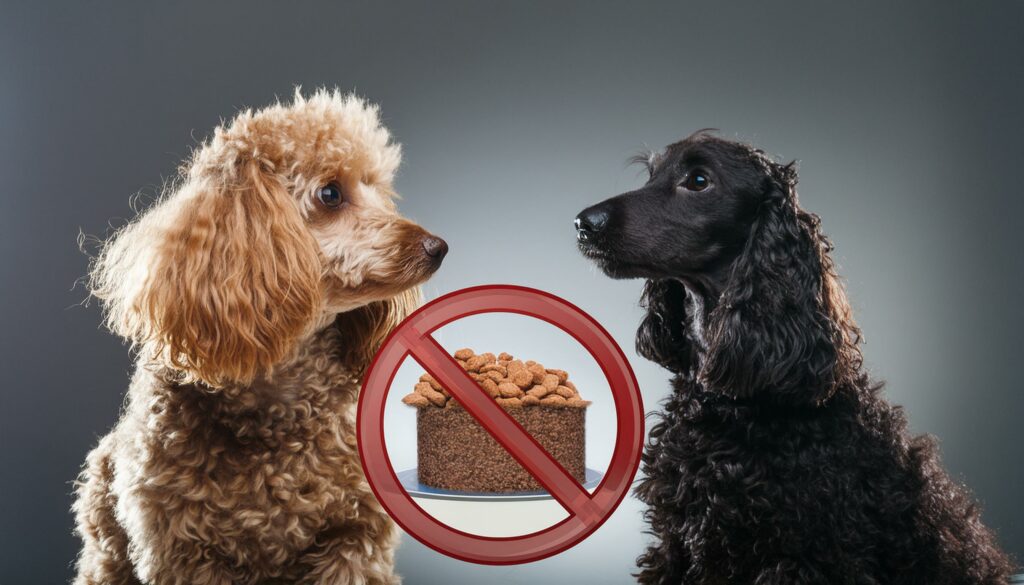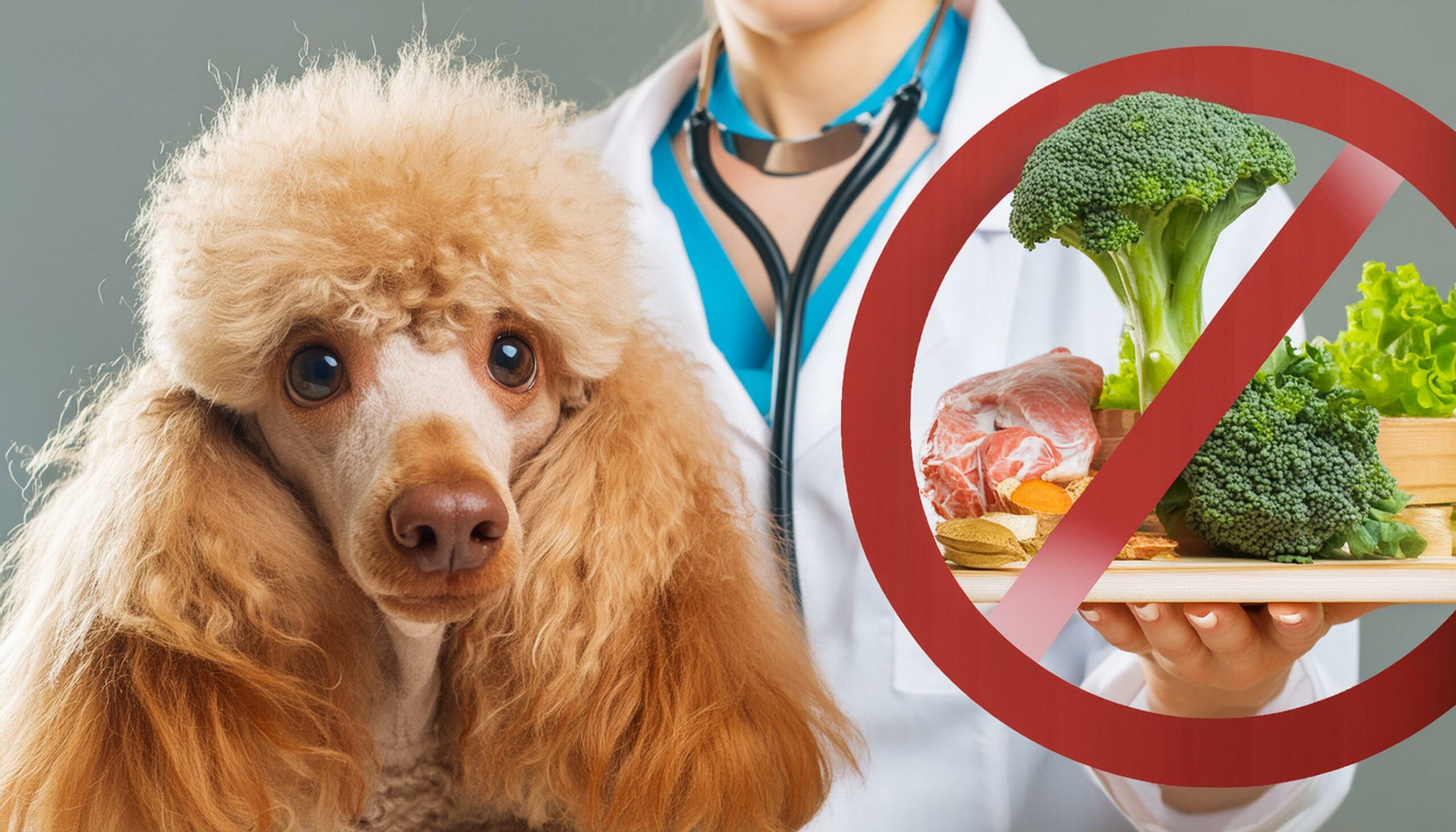Poodles, with their elegant appearance and remarkable intelligence, have captured the hearts of many dog lovers worldwide. As responsible pet owners, it’s essential to understand the dietary needs and potential hazards associated with certain foods when it comes to caring for our beloved Poodles. Let’s delve into the foods that should be avoided to ensure the well-being of these cherished companions.
1. Chocolate
One of the most well-known toxic foods for dogs is chocolate. This delectable treat contains theobromine and caffeine, which are harmful to Poodles and can lead to various health issues ranging from vomiting and diarrhea to seizures and even death. Dark chocolate and baking chocolate have higher concentrations of these compounds, making them particularly dangerous for dogs.
2. Grapes and Raisins
While grapes and raisins may seem like harmless snacks to us, they can be extremely toxic to Poodles. Even in small amounts, these fruits can cause kidney failure, leading to symptoms such as vomiting, lethargy, and decreased appetite. It’s crucial to keep all grape-containing foods out of reach of Poodles to prevent potentially life-threatening complications.
3. Onions and Garlic
Onions and garlic, whether raw, cooked, or powdered, contain compounds that can damage a dog’s red blood cells, leading to anemia. Poodles are particularly sensitive to these substances, and ingestion can result in symptoms such as weakness, vomiting, and pale gums. Avoid feeding any dishes seasoned with onions or garlic to your Poodle to prevent adverse health effects.
4. Xylitol
Xylitol, a sugar substitute commonly found in sugar-free gum, candies, and baked goods, can have devastating effects on Poodles. Even small amounts of xylitol can cause a rapid release of insulin in dogs, leading to hypoglycemia and liver failure. It’s crucial to check ingredient labels carefully and keep all xylitol-containing products away from your Poodle.
5. Alcohol
Alcohol consumption can have severe consequences for Poodles, including intoxication, tremors, respiratory depression, coma, and even death. Never allow your Poodle to consume alcoholic beverages or foods containing alcohol, as even small amounts can be toxic and potentially fatal.
6. Caffeine
Caffeine, found in coffee, tea, energy drinks, and certain medications, is another substance that Poodles should avoid. Ingestion of caffeine can lead to restlessness, rapid breathing, heart palpitations, muscle tremors, and seizures. Be mindful of any caffeinated products in your home and ensure they are kept out of reach of your Poodle.

7. Macadamia Nuts
Macadamia nuts are particularly toxic to dogs, including Poodles. Ingestion of even a small amount of macadamia nuts can result in symptoms such as weakness, vomiting, tremors, and hyperthermia. It’s crucial to be vigilant and keep all macadamia nut-containing foods away from your Poodle to prevent potential harm.
8. Avocado
While avocados are a nutritious food for humans, they can be toxic to Poodles. Avocado contains a substance called persin, which can cause vomiting and diarrhea in dogs. While the flesh of the avocado is less toxic than the pit and skin, it’s best to avoid feeding any part of the avocado to your Poodle to prevent gastrointestinal upset.
9. Raw Meat and Bones
Feeding Poodles raw meat and bones may seem like a natural choice, but it can pose significant health risks. Raw meat and bones can harbor harmful bacteria such as Salmonella and E. coli, leading to food poisoning and gastrointestinal issues in Poodles. Additionally, bones can splinter and cause choking or internal injuries. It’s safer to feed your Poodle cooked meat and avoid giving them bones altogether.
Potential Health Risks
Feeding Poodles foods they shouldn’t eat can result in various health problems, including digestive issues such as vomiting and diarrhea, kidney damage, liver problems, and neurological symptoms such as seizures and tremors. In severe cases, ingestion of toxic foods can be fatal, highlighting the importance of being vigilant about your Poodle’s diet.
Alternative Safe Foods
While some human foods are off-limits to Poodles, there are plenty of safe alternatives to incorporate into their diets. Lean meats such as chicken and turkey, vegetables such as carrots and green beans, fruits such as apples and bananas (without seeds), rice, pasta, and dairy products in moderation can provide nutrition and variety without posing any harm to your Poodle.
Feeding Practices
To ensure the health and well-being of your Poodle, it’s essential to practice responsible feeding habits. This includes controlling portion sizes to prevent obesity, establishing a regular feeding schedule to maintain stability, and monitoring for any adverse reactions to new foods introduced into their diet. Additionally, always provide access to fresh water and consult with your veterinarian if you have any concerns about your Poodle’s diet or health.
Conclusion
In conclusion, understanding what foods Poodles cannot eat is vital for their overall health and longevity. By being aware of potential hazards and sticking to a balanced diet of safe, nutritious foods, you can help keep your Poodle happy and healthy for years to come. However, if your Poodle ingests a toxic substance, it’s crucial to seek immediate veterinary care for the best chance of a positive outcome.
FAQs
Can Poodles eat peanut butter?
Yes, plain, unsalted peanut butter is safe for Poodles in moderation. However, avoid brands containing xylitol, which is toxic to dogs.
Is it safe to give Poodles table scraps?
It’s generally not recommended to feed Poodles table scraps, as many human foods can be harmful to them. Stick to a balanced diet formulated for dogs.
Can Poodles eat cheese?
Yes, plain cheese in moderation can be a tasty and safe treat for Poodles. However, some dogs may be lactose intolerant, so monitor for any digestive issues.
Are there any safe fruits for Poodles?
Yes, fruits like apples, bananas, and berries (without seeds) are safe for Poodles and can be a healthy addition to their diet.
How can I tell if my Poodle has eaten something toxic?
Watch for symptoms such as vomiting, diarrhea, lethargy, tremors, difficulty breathing, and seizures. If you suspect your Poodle has ingested something harmful, seek veterinary care immediately.
